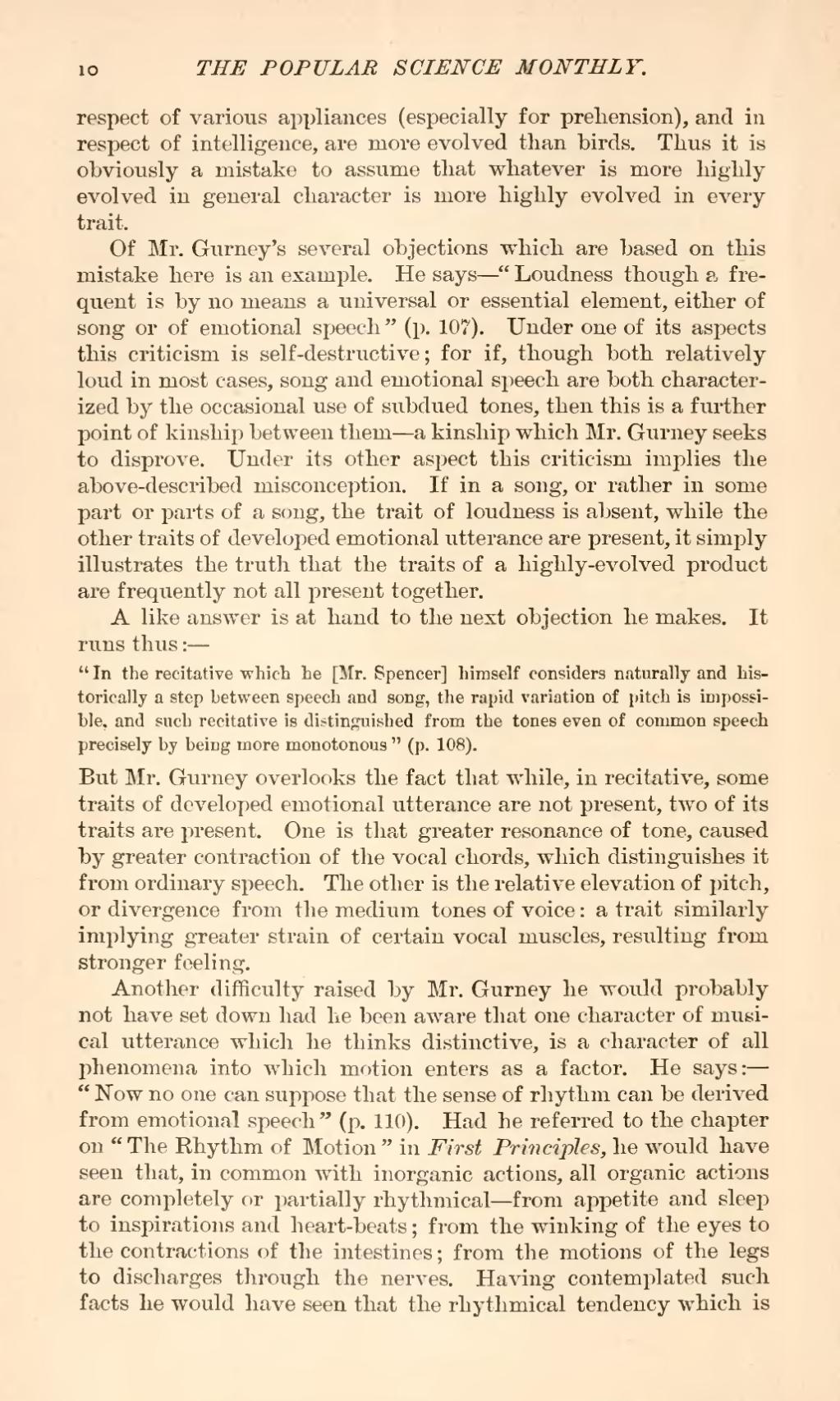respect of various appliances (especially for prehension), and in respect of intelligence, are more evolved than birds. Thus it is obviously a mistake to assume that whatever is more highly evolved in general character is more highly evolved in every trait.
Of Mr. Gurney's several objections which are based on this mistake here is an example. He says—"Loudness though a frequent is by no means a universal or essential element, either of song or of emotional speech" (p. 107). Under one of its aspects this criticism is self-destructive; for if, though both relatively loud in most cases, song and emotional speech are both characterized by the occasional use of subdued tones, then this is a further point of kinship between them—a kinship which Mr. Gurney seeks to disprove. Under its other aspect this criticism implies the above-described misconception. If in a song, or rather in some part or parts of a song, the trait of loudness is absent, while the other traits of developed emotional utterance are present, it simply illustrates the truth that the traits of a highly-evolved product are frequently not all present together.
A like answer is at hand to the next objection he makes. It runs thus:—
But Mr. Gurney overlooks the fact that while, in recitative, some traits of developed emotional utterance are not present, two of its traits are present. One is that greater resonance of tone, caused by greater contraction of the vocal chords, which distinguishes it from ordinary speech. The other is the relative elevation of pitch, or divergence from the medium tones of voice: a trait similarly implying greater strain of certain vocal muscles, resulting from stronger feeling.
Another difficulty raised by Mr. Gurney he would probably not have set down had he been aware that one character of musical utterance which he thinks distinctive, is a character of all phenomena into which motion enters as a factor. He says: "Now no one can suppose that the sense of rhythm can be derived from emotional speech" (p. 110). Had he referred to the chapter on "The Rhythm of Motion" in First Principles, he would have seen that, in common with inorganic actions, all organic actions are completely or partially rhythmical—from appetite and sleep to inspirations and heart-beats; from the winking of the eyes to the contractions of the intestines; from the motions of the legs to discharges through the nerves. Having contemplated such facts he would have seen that the rhythmical tendency which is
